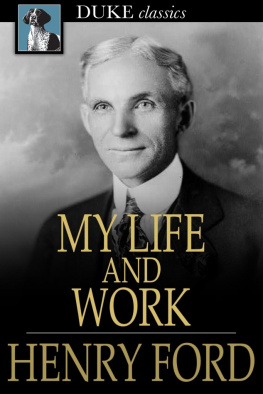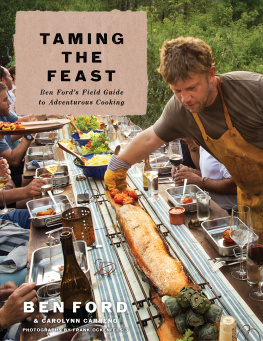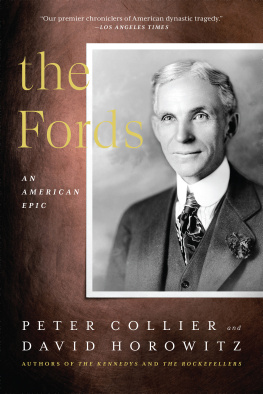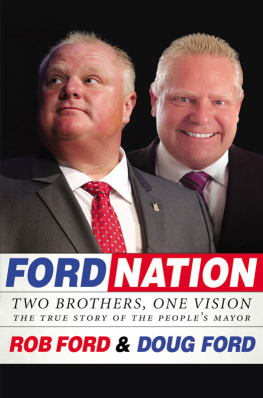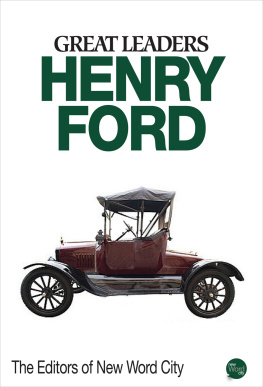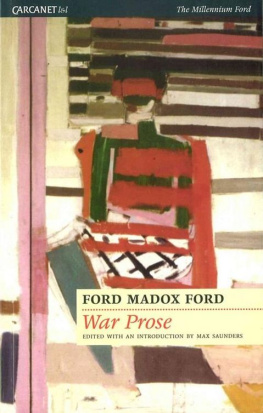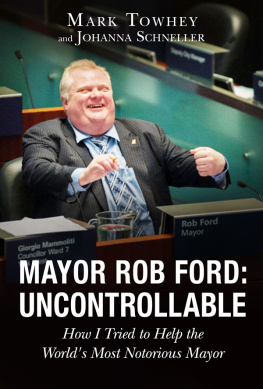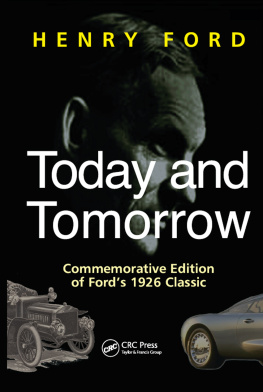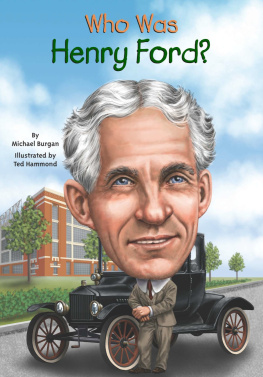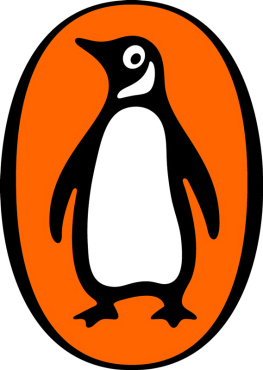MY LIFE AND WORK
* * *
HENRY FORD
Contributions by
SAMUEL CROWTHER
*
My Life and Work
From a 1922 edition
ISBN 978-1-62011-418-6
Duke Classics
2012 Duke Classics and its licensors. All rights reserved.
While every effort has been used to ensure the accuracy and reliability of the information contained in this edition, Duke Classics does not assume liability or responsibility for any errors or omissions in this book. Duke Classics does not accept responsibility for loss suffered as a result of reliance upon the accuracy or currency of information contained in this book.
Contents
*
Introduction - What is the Idea?
*
We have only started on our development of our countrywe have not asyet, with all our talk of wonderful progress, done more than scratch thesurface. The progress has been wonderful enoughbut when we comparewhat we have done with what there is to do, then our pastaccomplishments are as nothing. When we consider that more power is usedmerely in ploughing the soil than is used in all the industrialestablishments of the country put together, an inkling comes of how muchopportunity there is ahead. And now, with so many countries of the worldin ferment and with so much unrest every where, is an excellent time tosuggest something of the things that may be done in the light of whathas been done.
When one speaks of increasing power, machinery, and industry there comesup a picture of a cold, metallic sort of world in which great factorieswill drive away the trees, the flowers, the birds, and the green fields.And that then we shall have a world composed of metal machines and humanmachines. With all of that I do not agree. I think that unless we knowmore about machines and their use, unless we better understand themechanical portion of life, we cannot have the time to enjoy the trees,and the birds, and the flowers, and the green fields.
I think that we have already done too much toward banishing the pleasantthings from life by thinking that there is some opposition betweenliving and providing the means of living. We waste so much time andenergy that we have little left over in which to enjoy ourselves.
Power and machinery, money and goods, are useful only as they set usfree to live. They are but means to an end. For instance, I do notconsider the machines which bear my name simply as machines. If that wasall there was to it I would do something else. I take them as concreteevidence of the working out of a theory of business, which I hope issomething more than a theory of businessa theory that looks towardmaking this world a better place in which to live. The fact that thecommercial success of the Ford Motor Company has been most unusual isimportant only because it serves to demonstrate, in a way which no onecan fail to understand, that the theory to date is right. Consideredsolely in this light I can criticize the prevailing system of industryand the organization of money and society from the standpoint of one whohas not been beaten by them. As things are now organized, I could, wereI thinking only selfishly, ask for no change. If I merely want money thepresent system is all right; it gives money in plenty to me. But I amthinking of service. The present system does not permit of the bestservice because it encourages every kind of wasteit keeps many menfrom getting the full return from service. And it is going nowhere. Itis all a matter of better planning and adjustment.
I have no quarrel with the general attitude of scoffing at new ideas. Itis better to be skeptical of all new ideas and to insist upon beingshown rather than to rush around in a continuous brainstorm after everynew idea. Skepticism, if by that we mean cautiousness, is the balancewheel of civilization. Most of the present acute troubles of the worldarise out of taking on new ideas without first carefully investigatingto discover if they are good ideas. An idea is not necessarily goodbecause it is old, or necessarily bad because it is new, but if an oldidea works, then the weight of the evidence is all in its favor. Ideasare of themselves extraordinarily valuable, but an idea is just an idea.Almost any one can think up an idea. The thing that counts is developingit into a practical product.
I am now most interested in fully demonstrating that the ideas we haveput into practice are capable of the largest applicationthat they havenothing peculiarly to do with motor cars or tractors but form somethingin the nature of a universal code. I am quite certain that it is thenatural code and I want to demonstrate it so thoroughly that it will beaccepted, not as a new idea, but as a natural code.
The natural thing to do is to workto recognize that prosperity andhappiness can be obtained only through honest effort. Human ills flowlargely from attempting to escape from this natural course. I have nosuggestion which goes beyond accepting in its fullest this principle ofnature. I take it for granted that we must work. All that we have donecomes as the result of a certain insistence that since we must work itis better to work intelligently and forehandedly; that the better we doour work the better off we shall be. All of which I conceive to bemerely elemental common sense.
I am not a reformer. I think there is entirely too much attempt atreforming in the world and that we pay too much attention to reformers.We have two kinds of reformers. Both are nuisances. The man who callshimself a reformer wants to smash things. He is the sort of man whowould tear up a whole shirt because the collar button did not fit thebuttonhole. It would never occur to him to enlarge the buttonhole. Thissort of reformer never under any circumstances knows what he is doing.Experience and reform do not go together. A reformer cannot keep hiszeal at white heat in the presence of a fact. He must discard all facts.
Since 1914 a great many persons have received brand-new intellectualoutfits. Many are beginning to think for the first time. They openedtheir eyes and realized that they were in the world. Then, with a thrillof independence, they realized that they could look at the worldcritically. They did so and found it faulty. The intoxication ofassuming the masterful position of a critic of the social systemwhichit is every man's right to assumeis unbalancing at first. The veryyoung critic is very much unbalanced. He is strongly in favor of wipingout the old order and starting a new one. They actually managed to starta new world in Russia. It is there that the work of the world makers canbest be studied. We learn from Russia that it is the minority and notthe majority who determine destructive action. We learn also that whilemen may decree social laws in conflict with natural laws, Nature vetoesthose laws more ruthlessly than did the Czars. Nature has vetoed thewhole Soviet Republic. For it sought to deny nature. It denied above allelse the right to the fruits of labour. Some people say, "Russia willhave to go to work," but that does not describe the case. The fact isthat poor Russia is at work, but her work counts for nothing. It is notfree work. In the United States a workman works eight hours a day; inRussia, he works twelve to fourteen. In the United States, if a workmanwishes to lay off a day or a week, and is able to afford it, there isnothing to prevent him. In Russia, under Sovietism, the workman goes towork whether he wants to or not. The freedom of the citizen hasdisappeared in the discipline of a prison-like monotony in which all aretreated alike. That is slavery. Freedom is the right to work a decentlength of time and to get a decent living for doing so; to be able toarrange the little personal details of one's own life. It is theaggregate of these and many other items of freedom which makes up thegreat idealistic Freedom. The minor forms of Freedom lubricate theeveryday life of all of us.

